Food desert in north Alliance creates trouble for residents
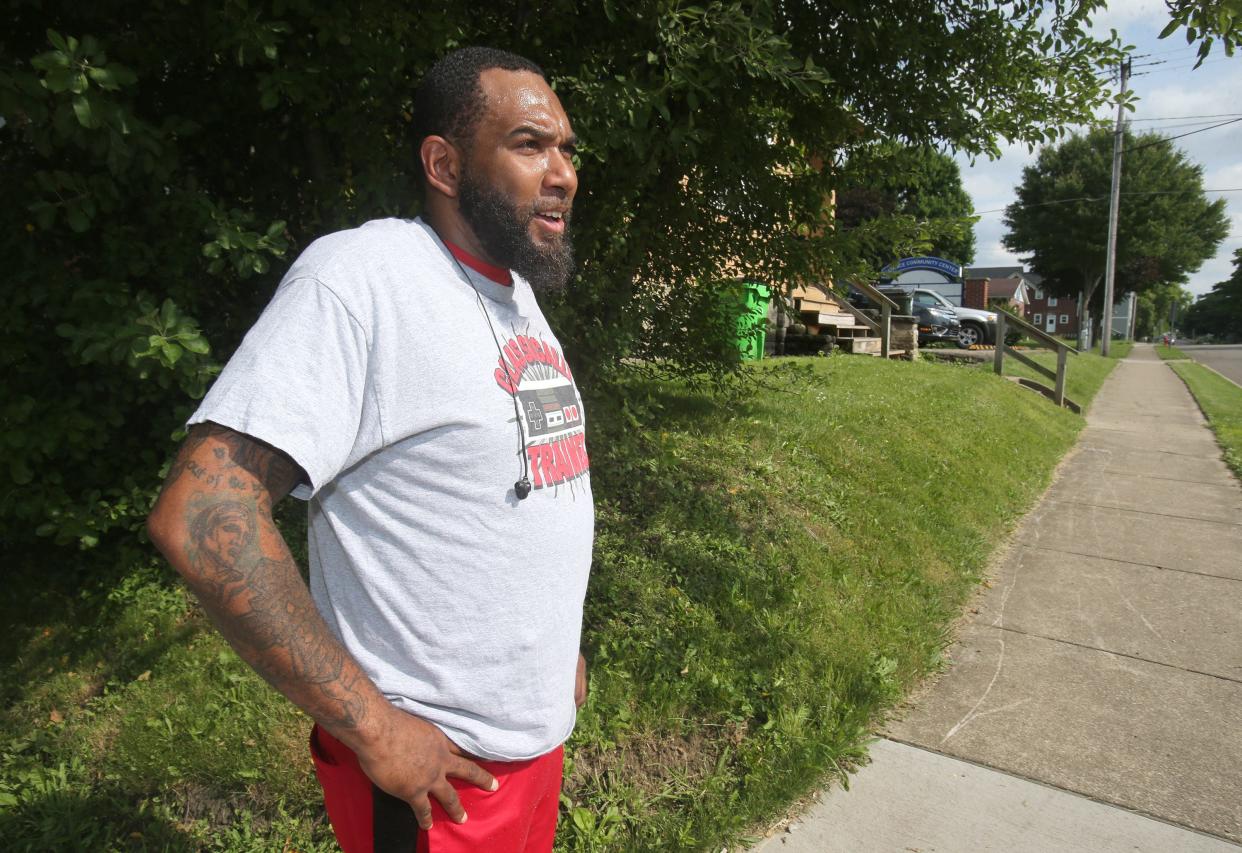
ALLIANCE – Five major grocery chains have locations in the city, but David Sheegog Jr. and other residents in the north section of Alliance must travel more than two miles to get to the nearest store.
Sheegog has lived in the city for three years. He buys his groceries at Save A Lot on East State Street, he said, and believes there needs to be more options for people in Wards 1 and 2.
"There should always be a neighborhood store," he said.
There is no shortage of grocery stores on State Street, with Giant Eagle, Walmart, Marc's and soon-to-be Meijer a few of the supermarkets that sit along one of the city's busiest streets. But the grocery landscape in the north section of town looks a lot different. The area has not had a full-service grocery store since Sander's Markets closed three years ago.
The food desert has created a barrier between residents and access to fresh produce and other nutritional food. Many want to see another supermarket come to the area, but an expert said it can be difficult to convince a grocery store to invest in a food desert, leading community organizations and churches to spearhead the effort.
What is a food desert?
The U.S. Department of Agriculture defines a food desert as a low-income census tract where a substantial number of residents have little to no access to affordable, healthy food.
The agency considers a census tract low income if it has a 20% or greater poverty rate or median family income below 80% of the statewide or metropolitan area median family income. Meanwhile, low access is defined by a community of at least 500 residents where at least 33% live more than one mile from a supermarket or grocery store. In rural communities, it is 10 miles.
But Chris Post, a geography professor at Kent State University at Stark, said the USDA's definition of a food desert only accounts for distance and fails to address other barriers that prevent people from purchasing healthy food.
"If there's a fence around part of (the grocery store), or if you're forcing people to walk through the shipping area where the trucks come in and out of, that's still incredibly difficult and dangerous. So that food might be across the street, but it's still not really available or easy to get access," Post said.
What leads to a food desert?
One problem that creates food deserts is that many large grocery chains choose not to open locations in low-income areas.
"The big economic factor is that most of your major chain grocery stores will not invest in putting a store in a lower income neighborhood because they're concerned they won't get the profit that they need for that unit to survive," Post said.
This problem is not unique to Alliance. About 13.5 million people live in census tracts with low-access to fresh food, according to the USDA.
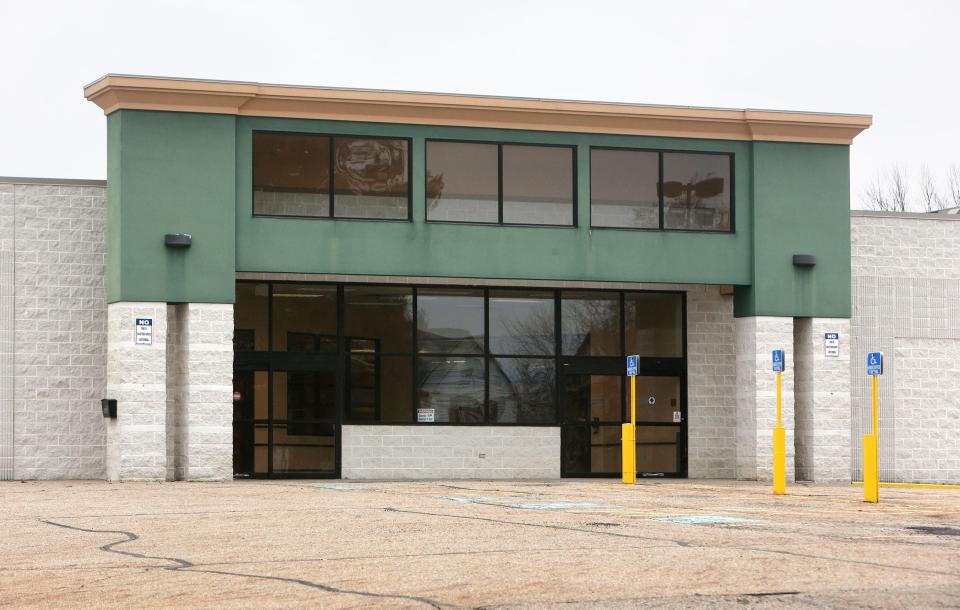
Neighborhoods in north Alliance have been without a full-service grocery store since 2019. Sander's Market shuttered its location on South Union Avenue at the end of 2018, citing high operating costs, marginal performance and vandalism.
Sander's was only open for eight months. The grocery chain acquired the building through U.S. Bankruptcy Court after Thorne's, the supermarket that previously occupied the space, went into federal bankruptcy in 2017.
The facility sat vacant until it was purchased by Alliance Ventures in 2020. Sun America currently leases the facility as a warehouse for its commercial bakery and food service products.
The former grocery store is next to the city's poorest census tract. Census Tract 7104 has a median household income of $12,372, according to Census Reporter. That is roughly two-thirds the median income of the rest of Alliance ($21,075) and half of Stark County ($30,168).
Meijer: What the supermarket means for Stark County, other store chains
How has the food desert affected Alliance?
Stacie Weimer, executive director of the Alliance YWCA, said the closure of Sander's Market has made it more difficult for people in the north section of the city to get healthy food.
"When you have lack of availability, and we're talking about the barriers that come with traveling to State Street at a minimum, you're definitely going to see people relying on gas station food because it's what's accessible at that time," she said.
This is a common issue found in areas without supermarkets, Post said. Many people in these communities consume foods with high levels of high fructose corn syrup and cheap proteins like fast-food hamburgers. This can lead to malnutrition and undernourishment, he said.
Post said dollar stores are not enough to supplement full-service grocery stores.
"They still lack a produce aisle, and that's one of the most important things that's needed to be considered a food vendor in these circumstances," he said. "You've got to have the fresh vegetables and fruits and other whole grain options."
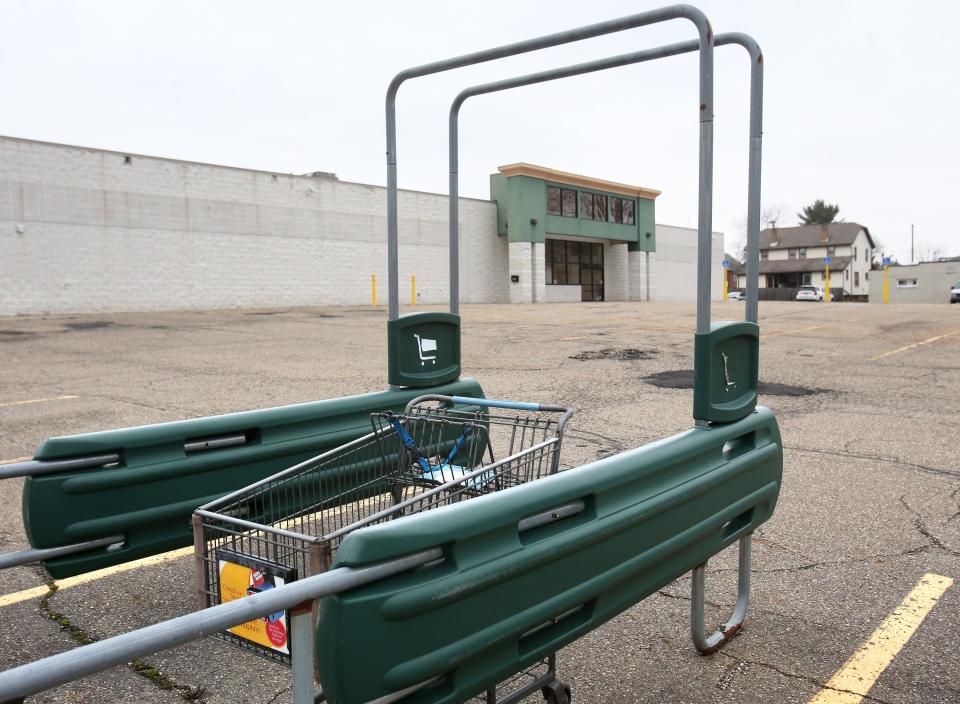
Councilwoman Sheila Cherry (D-1) said many residents in the northeast part of Alliance have struggled in the absence of a supermarket.
"It was a challenge (getting fresh food) before Sander's and it's definitely one now," she said.
Cherry said many people rely on food pantries and mobile grocery store programs like StarkFresh for food, but that there are not enough resources to meet the demand in the city.
"I think there should be more efforts being done to get somebody in here that can stay," she said.
Weimer said the Alliance YWCA refers people experiencing food insecurity to the Alliance Community Pantry, but that some residents — particularly those living across the Dr. Martin Luther King Jr. Viaduct — might have trouble getting to the pantry.
"If you live across the viaduct, the pantry might not be that accessible either, especially if you have to travel, if you don't have the transportation to do so," she said. "And even across the viaduct, there's not even a gas station there available."
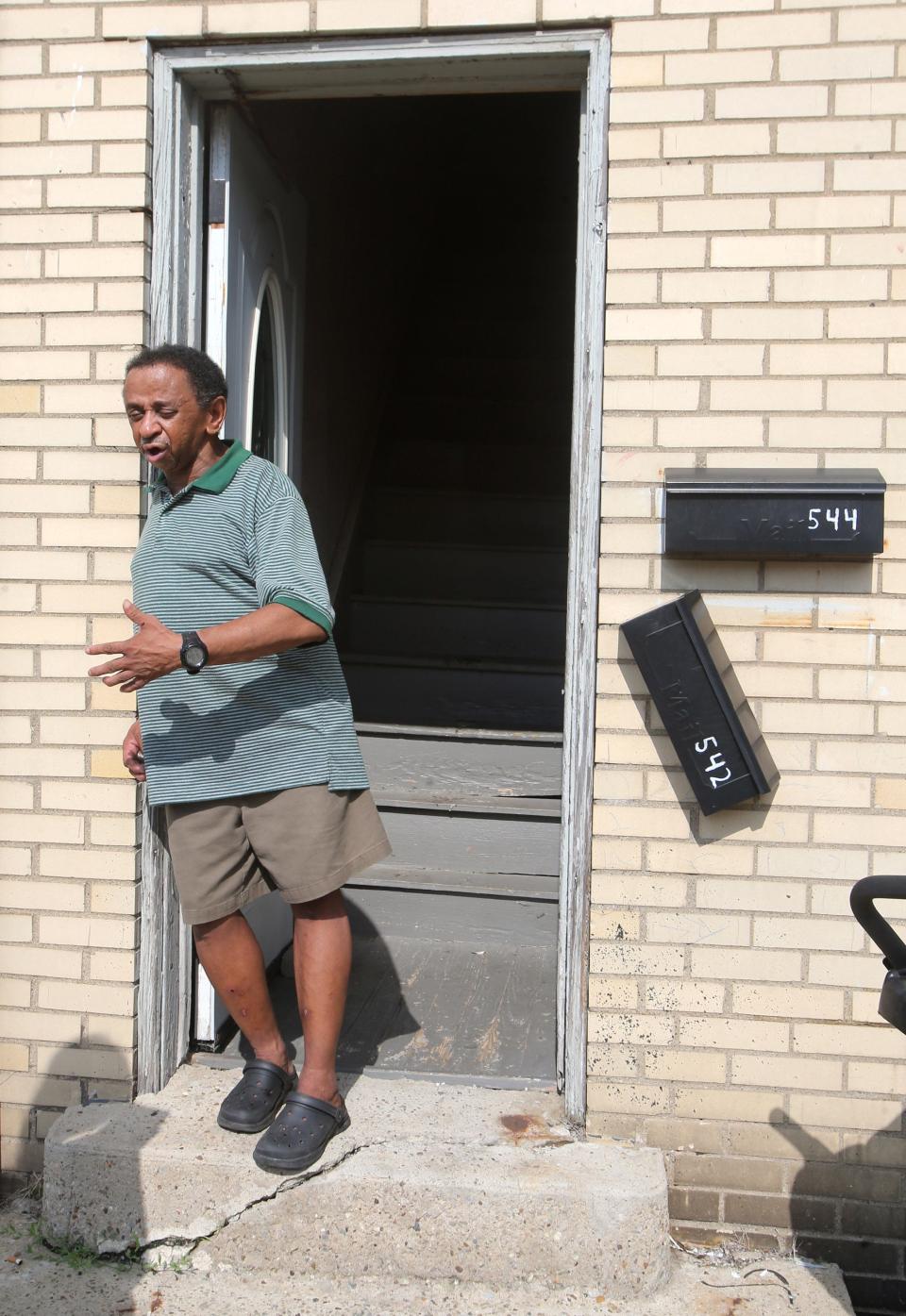
Several Carnation City residents agreed that access to fresh food is limited in the north part of town.
Jason Ridgeway has lived in the city for 20 years. He shopped at Thorne's and later Sander's Market before the grocery store shut down. He said he knows there are many people who rely on others to get groceries for them because they cannot go themselves.
"(The city) should try to get a closer store," Ridgeway said
Similarly, resident Tim Stuchell said there needs to be closer places to shop. He buys most of his food at the dollar store and occasionally makes a trip to State Street to get groceries.
He said a lot of people in the community depend on food stamps.
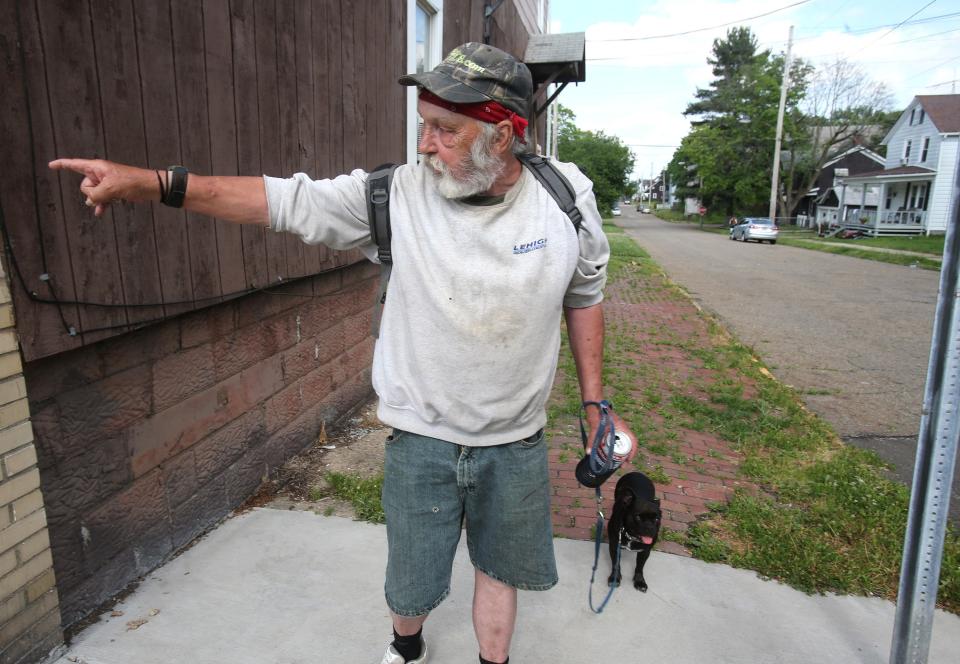
Joe Mazzola: 'I would love to see a grocery store on the north side. We all would here in the administration.'
City Director of Planning and Economic Development Joe Mazzola said city officials want to see a grocery store succeed in the north part of Alliance, but that it has proven to be difficult.
"They simply don't get the traffic counts that State Street gets," he said.
Mazzola said it can be hard for grocery store owners to make money because of overhead costs such as running freezers 24 hours per day.
"If TJ Maxx doesn't sell a shirt, they can discount it and still recover something. A grocery store, if their inventory goes bad, it's a complete loss. They have to throw it out," he said.
Additionally, Mazzola said a grocery store in the north part of town would have the challenge of competing against the other supermarkets on State Street. Alliance has a competitive grocery store landscape, he said, and any store that came to the area would have to compete against supermarkets such as Giant Eagle, Walmart and Marc's.
"I would love to see a grocery store on the north side. We all would here in the administration," he said. "But the challenges of attempting to do that while making money, the level of difficulty is high."
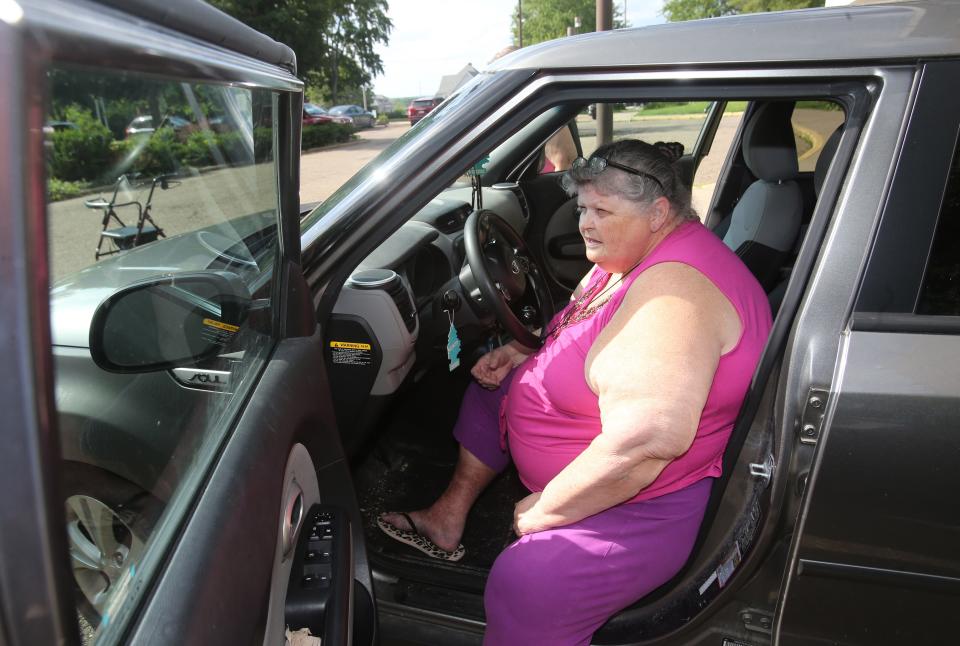
Alliance's Farmers Market was located downtown for its first 10 years of operation, providing people in the area with the opportunity to buy fresh produce. But the organization moved to West State in 2019.
"They took the only source of fresh vegetables to Giant Eagle," Cherry said.
Cimarron Ney-George, Alliance Farmers Market manager, previously told the Repository that low attendance drove the decision. She said the market's board wanted to stay downtown, but that vendors were not making enough money for the market to remain viable.
The farmers market will be operating in a new location this year: the northeast corner of State Street and Union Avenue.
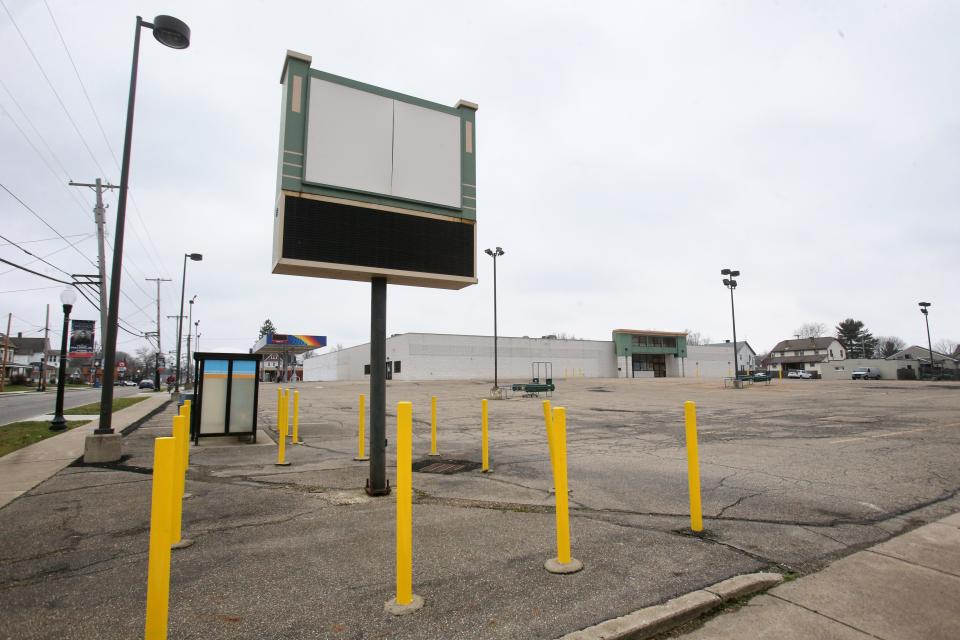
Ney-George said the purpose of the move is to provide better visibility and attract more shoppers and vendors. She said the board hopes this new spot will be more accessible for residents because it is more centrally located than the Giant Eagle parking lot. It also has a Stark Area Regional Transit Authority stop nearby, which could draw in residents who use public transportation.
Resident Susan White, who has lived in Alliance since 2020, thinks the market's move will be good for the community.
"More people can access it," she said.
But Cherry said the market's new location is not close enough for low-income residents without access to transportation. She believes market vendors would have found more success if they stayed downtown and lowered their prices so that lower income residents could afford their goods, she said.
"Four people buying some green beans can still make you profit for the day," Cherry said.
Stark County: Your first look inside the county's first Meijer Supercenter
'Inspiring people to be entrepreneurial.'
Post said that many communities across the U.S. are trying to alleviate food deserts by growing their own fruits and vegetables.
He has worked with StarkFresh in downtown Canton for several years. He said the organization strives not only to provide Stark County residents with fresh produce, but also teach them how to grow food themselves.
"They are inspiring people to be entrepreneurial. They are empowering people to know how to grow their own food," Post said.
The hope, he said, is that showing people how to grow fruits and vegetables themselves will have a "bigger effect" by helping them overcome the lack of fresh produce in their communities.
Cherry said she hopes to see more organizations and churches in the Alliance community join in the effort to bring fresh food to those in need. She said it's important for everyone in the community to step up to resolve the issue.
"Some of it doesn't take money; it takes time and effort," she said.
Reach Paige at 330-580-8577 or pmbennett@gannett.com, or on Twitter at @paigembenn.
Resources available for Alliance residents in need
Alliance Community Pantry
Clients can receive food from the pantry every two weeks. Clients must be a photo ID and proof of residency during first visit. They will register by household by providing their name, birth date and race, along with the names, race and birth dates of the other members of their household.
Eligibility requirements:
Must live in 44601 ZIP code or Marlington School District
Must meet federal and state food income guidelines.
Clients are asked to re-register every July and show proof of residency at that time.
The pantry is located at 215 E. Market St. and open from 4 p.m. to 7 p.m. Mondays, from 9 a.m. to noon Tuesdays, and from 4 p.m. to 7 p.m. Wednesdays.
YWCA of Alliance
The agency's Meals on Wheels program provides hot, nutritious meals delivered by community volunteers to senior homes in the community. Patrons can receive meals up to five days per week, and options are based on dietary needs and taste.
For more information or to enroll in the program, call 330-823-1840.
The YWCA also offers a congregate dining option for seniors and disabled residents living in Alliance Towers. Lunch is served on Mondays through Thursdays in Alliance Towers' dining room. Residents can enroll in the program by contacting the resident services coordinator.
Family Empowerment Ministries
The Family Matters Resource Center provides food to those in need on the first and second Friday of every month. Residents can call 330-913-7007 Monday through Thursday and leave the number of people in their household. They can drive up to the community center at 425 E. Market St. at 6 p.m. and food will be brought out.
Clothed in Righteousness
The nonprofit organization located at 55 E Main St. provides free food, clothing, hygiene and cleaning products to those in need. There are no eligibility requirements. Hours are 6 to 8 p.m. Monday and Wednesday, and 6:30 to 8:30 p.m. Tuesday and Thursday. Emergency assistance is available outside of business hours to Alliance area homeless. For more information, contact 330-501-8262.
This article originally appeared on The Repository: Alliance's food desert creates barriers to healthy food

